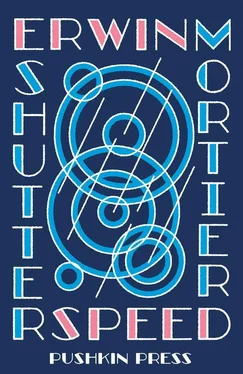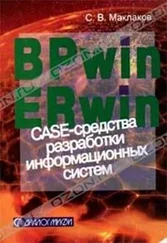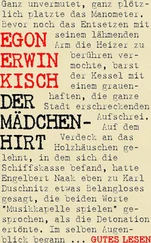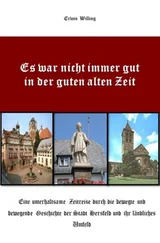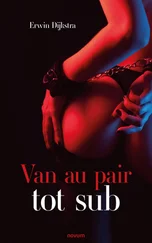‘Such derring-do, that was,’ he continued, as if he had observed the battle from a ringside seat.
‘Picture this. All those horses keeling over, kicking like mad, while the lords riding them in heavy armour were deadweights, they just sank. But our Jean didn’t stop there. No indeed! Less than two years later, during the battle of Pevelenberg, he fought his way right up to the French king’s tent. They say he even drank wine from the king’s goblet. Talk about being brave …’
In later centuries the Van Callants gradually withdrew to the seclusion of their ancestral home. I myself had seen Master Theodore, Jean’s distant descendant, only once in the flesh, and only from afar, sitting doll-like in a wicker chair with a rug over his knees on the front porch of his manor. It was early autumn. My curiosity had got the better of me, so I ignored the PROPRIETÉ PRIVÉ sign at the entrance to the tree-lined alleyway at the back.
It was a becalmed, sun-drenched afternoon, turning chilly towards the end. An orange awning had been extended over the terrace. I heard the sound of a radio, a man’s voice speaking a jerky sort of French, followed by piano music.
The breeze battened down the grass on the rise between the pond and the house, and pried the first autumn leaves off the ancient beeches on either side. Looking between the trunks of the trees I could make out the wall of the orchard and overhanging branches laden with ripe pears, then on the other side, protruding above an equally weathered wall, the tips of willow stakes drooping with runner beans.
Half submerged in the stream along the perimeter of the estate there still remained vestiges of the ancient fortress: blocks of yellow stone, bluestone doorsteps, chunks of foundations of the edifice which, as our master would have it, had once dominated the landscape for miles around. One of Master Theodore’s ancestors pulled it down and built himself a less grim-looking residence on the same site. Later still another Van Callant dug the pond, thereby modifying the course of the stream, after which the spoil was turned into mounds topped with artfully designed ruins.
Since then the parkland had been left to go to seed, the undergrowth taking over, the pond choked with reeds and silted up by the stream emerging from the backwoods, where there was a statue of a hunting goddess with a beard of moss. The big house itself, the mossy slates on the roof, the flaking blinds over the top-floor windows, the thickly ivied west wing, seemed equally resigned to nature’s might. And yet, according to Mr Snellaert, one could not but admire what he called a chapter of living history.
Uncle Werner was less appreciative. ‘Sitting on their backsides lining their pockets and checking the state of their stocks and shares, that’s all those fat cats ever did,’ he would say. ‘Haven’t hefted a sword in a hundred years.’
Aunt would always protest. Hélène Vuylsteke, for that was her friend’s full name, had been in service at the manor all her life, and the two of them went back a very long way. Aunt always prided herself on the years she had spent with the Sisters of Saint Esprit, at a Walloon boarding-school for girls from good families where it was forbidden to speak a word of Flemish. A posh school, she insisted. She was eternally grateful to Mr Vuylsteke for not only persuading her father to let her accompany his daughter Hélène but also offering to pay more than half of her school fees.
She and her friend pose for the camera in the convent courtyard, either side of a towering nun in a black habit and a close-fitting head-dress like a periscope framing the bulge of her face. In the background roses straggle up the arches of a pergola and a stone heron stoops over water lilies in a pond.
Aunt almost looks as if she wants to hide behind the nun’s habit, but Hélène confronts the camera with lifted chin. I recognise the arctic clarity of her gaze, in which a hint of condescension is already to be seen, even though she is barely out of her teens.
‘We are not in a hurry,’ she had replied that day, when asked whether she would like some coffee, whereupon Aunt had escorted her unexpected visitors to the back.
They would have noticed the flies circling round the ceiling lamp, the oilcloth on the table that gave off a faintly rubbery smell in hot weather, the dresser stacked with cheap crockery and propped-up postcards, and the statue of the Virgin under a dusty bell jar on the mantelpiece between two brass shell cases that served as vases.
I heard Aunt clattering about with the kettle, spoons, sugar tongs, saucers. Perhaps she felt ill at ease with the two pairs of eyes, one steel blue, the other auburn, following her every movement with idle curiosity and amusement.
‘I’m still quite happy where I am, living here at Stuyvenberghe,’ I heard her call from the scullery where the kettle had just begun to sing, and it sounded almost like an apology.
Hélène Vuylsteke retorted that life was still simple in these parts, and that people in the countryside still knew their place, thank goodness. I don’t know if she was being sarcastic.
‘I was just thinking of retiring,’ she said, ‘going to live in my Brussels apartment near the Elsene lakes, but when la petite Isabeau arrived Monsieur Wauthier asked me to take charge of his daughter. He had such good memories of his old bonne …’ she lowered her voice. ‘Between you and me, I am beginning to feel my age rather. Quite a handful, that child.’
‘Yes,’ said Aunt, coming in with the coffee. ‘Runs in the family, doesn’t it?’
Hélène nodded. ‘Quite the image of her grandmère. A real little chip off the old block.’
The girl was not listening. She had set her hat on the corner of the table and unbuttoned her light raincoat, and her gaze was now sliding over every object in the room with the same aloofness she had shown Aunt and me. Only when Hélène spoke did she prick up her ears, apparently surprised to hear her governess lapsing into Flemish.
‘I can’t remember when I was here last,’ said Hélène.
‘It’s been twelve years at least,’ Aunt replied. ‘Maybe longer.’
The conversation was stilted. I noticed Aunt clenching and unclenching her fingers around her teaspoon.
‘I’ve heard the news about the churchyard,’ said Hélène. ‘A shame. But the chapel won’t have to go, it seems. Monsieur was so pleased.’
In the churchyard the Van Callants had their own abode, a vault against the north transept. All their names were there, chiselled in white marble on either side of a life-size pièta , all the knights, ladies, barons and gentlefolk they had ever sired. At some time a plaster scroll had been added at the base of the weeping Virgin, inscribed with the words ‘And all Other Members of our Family, scattered across the Face of the Earth, awaiting the Resurrection.’
The lacy carvings on the stone lintels and hefty wrought-iron chains enclosing the steps made their final resting place the most ostentatious structure of all, while the cemetery itself, with its pinnacled tombs of granite on which no expense had been spared, its separate corner for cot deaths and the outlying ranges of sagging headstones in reinforced cement, seemed as status conscious as the village of the living, itself reflected in the churchyard like a willow in a pond.
‘Monsieur was not very keen to move his beloved mother and all his family to a new concession,’ observed Hélène. ‘Their rightful place, he says, is in the lee of the church.’
‘Yes indeed,’ said Aunt, ‘though we won’t be so lucky, will we?’
Hélène ignored the hint of resentment in Aunt’s reply. ‘It’s because they rest in lead coffins, I believe,’ she said. ‘It seems they can’t take anything in or out, not out of lead.’
Читать дальше
